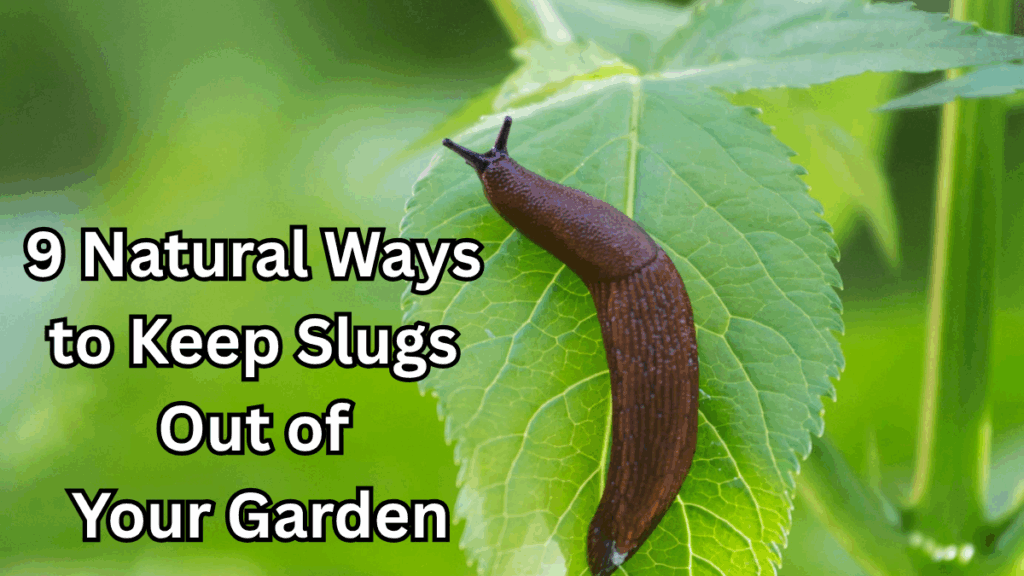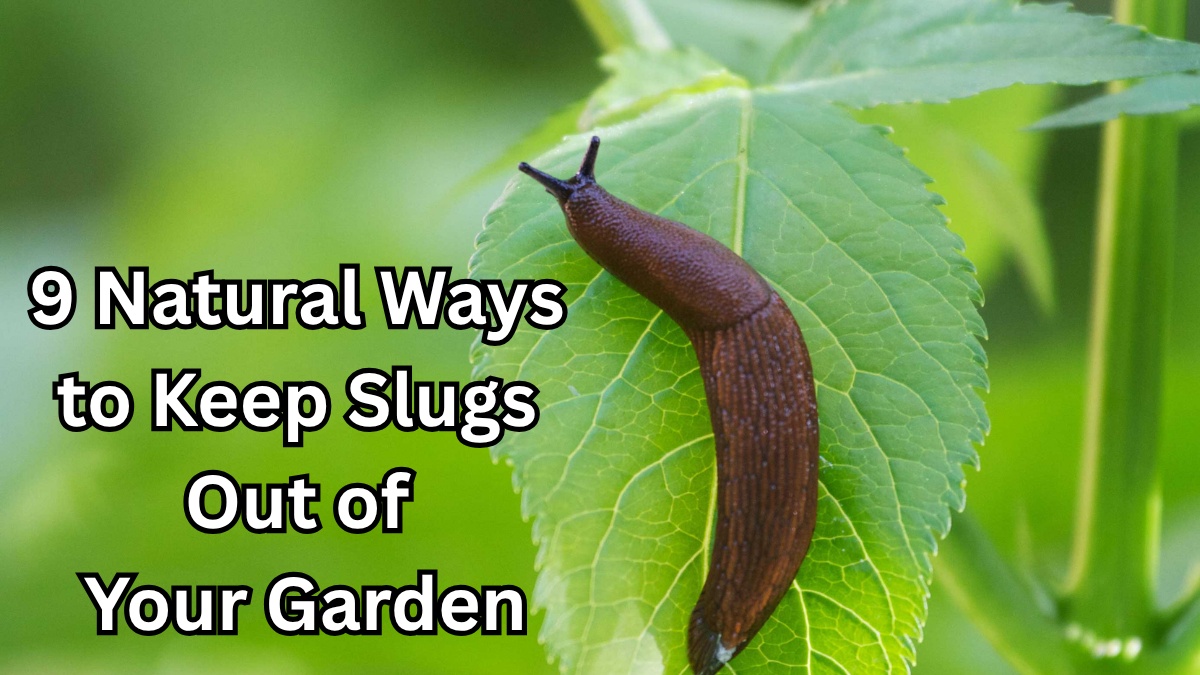Slugs can be a gardener’s nightmare, silently munching on your vegetables, flowers, and seedlings. While chemical pesticides are available, many gardeners prefer safer and eco-friendly solutions. Implementing natural pest control methods not only protects your plants but also keeps your garden environment healthy. Here are 9 natural ways for effective slug control.

1. Beer Traps
Slugs are attracted to the yeast in beer. Create a simple trap by:
-
Burying a shallow container up to the rim in soil.
-
Filling it with beer.
-
Checking daily and disposing of trapped slugs.
This is a low-effort, natural way to reduce slug populations without harming other wildlife.
2. Copper Barriers
Copper reacts with slug slime, deterring them from crossing:
-
Place copper tape around pots, raised beds, or garden borders.
-
Ensure the tape is continuous; gaps reduce effectiveness.
This method is a long-term slug control solution, perfect for protecting delicate plants.
3. Eggshell and Diatomaceous Earth Barriers
Both eggshells and diatomaceous earth create a rough surface slugs dislike:
-
Crush eggshells and spread them around seedlings.
-
Sprinkle diatomaceous earth in a dry, fine layer around plants.
These barriers are inexpensive and safe for children and pets.
4. Encourage Natural Predators
Many animals love feasting on slugs. Attract them naturally:
-
Birds, frogs, hedgehogs, and ground beetles help control slug populations.
-
Add birdhouses, water features, or log piles to your garden.
Using predators is a sustainable natural pest control strategy.
5. Hand-Picking
Yes, it sounds old-fashioned, but it works:
-
Check plants early morning or after rain.
-
Collect slugs manually and relocate or dispose of them.
This method is labor-intensive but highly effective for small gardens.
6. Coffee Grounds
Slugs dislike the caffeine and rough texture:
-
Sprinkle used coffee grounds around your plants.
-
Reapply after heavy rain.
This tip also improves soil fertility while keeping slugs away.
7. Plant Resistant Varieties
Some plants are less appealing to slugs:
| Plants Resistant to Slugs | Notes |
|---|---|
| Lavender | Aromatic; deters most pests |
| Rosemary | Thrives in sunny gardens |
| Fennel | Hardy herb with natural protection |
| Sage | Tough leaves slugs avoid |
Growing these alongside vulnerable plants can act as a natural slug deterrent.
8. Water Strategically
Slugs thrive in damp conditions:
-
Water your garden in the morning rather than evening.
-
Keep soil surface dry at night to discourage slug activity.
This simple garden tip reduces slug presence without chemicals.
9. Mulch Carefully
Mulch can provide shelter for slugs if done incorrectly:
-
Use coarse mulch like bark or gravel.
-
Avoid dense, wet mulch that traps moisture.
Proper mulch application is an effective garden tip for slug control.
FAQs About Slug Control in Gardens
Q1. Are beer traps safe for other wildlife?
Yes, shallow containers minimize accidental trapping, but place them away from pets and small animals.
Q2. Can I mix different natural pest control methods?
Absolutely. Combining copper barriers, egg shells, and hand-picking often works best.
Q3. How often should I check my garden for slugs?
Daily during rainy or damp periods is ideal, as slugs are most active in moisture.
Q4. Will slug-resistant plants stop all slug problems?
Not entirely. They reduce slug interest but should be part of a broader slug control strategy.
Click here to learn more
